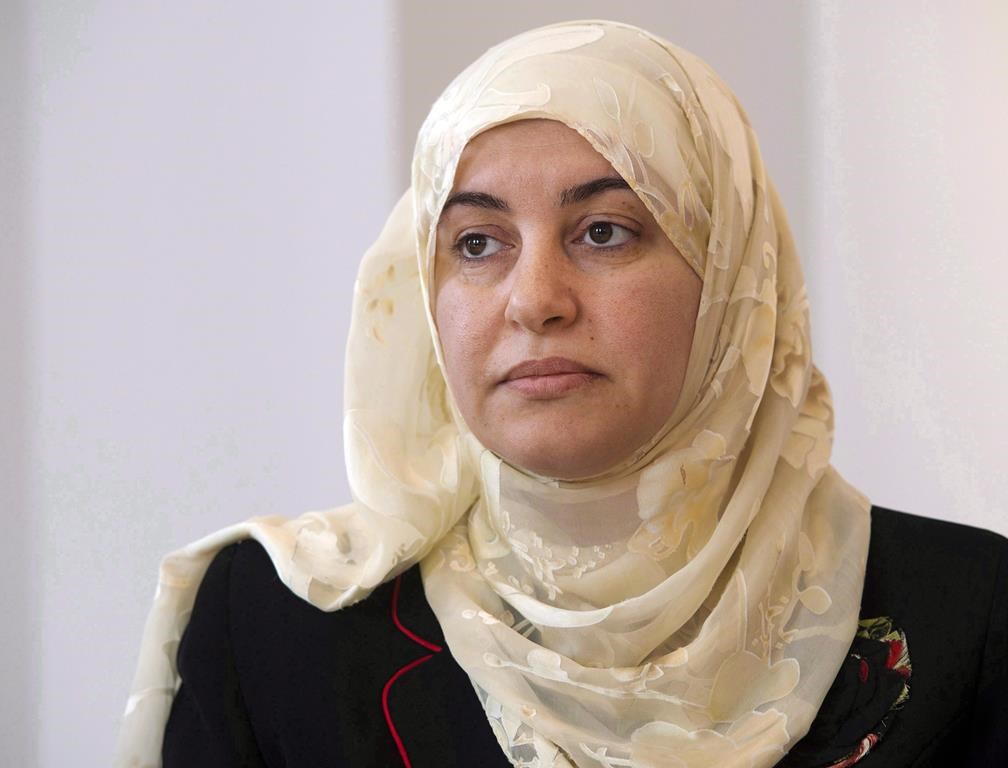A Quebec judge who refused to allow a Muslim woman to appear in court wearing a hijab apologized on Tuesday, more than five years after the incident occurred.

A letter of apology from Quebec court Judge Eliana Marengo was read out at a hearing of the province’s judicial council as part of a hearing to determine whether the disciplinary process against her should be ended.
In the letter, Marengo apologizes for having refused to hear Rania El-Alloul’s 2015 case unless she removed her hijab.
Marengo told El-Alloul at the time the courtroom was a secular space and she was violating rules requiring suitable dress.
READ MORE: Quebec judge who asked woman to remove hijab in court to offer apology
In the letter read on Tuesday, Marengo told El-Alloul that the comment she made, which included comparing the hijab to a hat or sunglasses, “was simply meant to exemplify how the rules of decorum are generally applied in the courtroom, and was most certainly not meant to disrespect you or your beliefs,” she wrote.
“Finally, Ms. El-Alloul, I would like to offer you my most sincere apologies, which I hope you will accept.”
Marengo acknowledged that she was wrong in her interpretation of the law and promised to apply the rules correctly in the future.

Get breaking National news
In a letter of response read during Tuesday’s hearing, El-Alloul, who had gone to court in 2015 to reclaim a seized vehicle, said she accepted the apology because “this is what my faith teaches me.”
“I hope she understands the pain she caused me and why it is so important for her to account for her actions,” she said in reference to Marengo.
El-Alloul said her main motivation in pursuing the matter was to obtain a judgment affirming the right to wear religious clothing in court, which was granted by Quebec’s highest court in 2018.
“Our justice system is not made for some and not others,” she said. “No, this is a democracy where everyone is to be treated equally before the law.”
The apology is the latest step in a long legal saga. The judge’s 2015 comments triggered numerous complaints to the Conseil de la magistrature, the judicial council that hears complaints against Quebec-appointed judges.
It decided some were founded and formed a committee to investigate Marengo’s conduct in June 2016.
Marengo asked Quebec Superior Court to force the judicial council to end its investigation, arguing it had breached the principle of judicial independence, but lost in February 2017 and on appeal a year later.
In October 2018, the Court of Appeal ruled in a separate case that obliging El-Alloul to remove her Muslim head scarf was a violation of her fundamental rights. It said in a unanimous decision that citizens who wear religious attire cannot be denied access to justice and that freedom of religious expression doesn’t stop at the courtroom door.
Tuesday’s hearing of the judicial council was called to evaluate Marengo’s request to end the disciplinary procedures launched against her following the incident.
The proposal, which included the apology, was jointly submitted by lawyers representing Marengo and those assigned to the investigation.
At the hearing, lawyers argued in favour of ending the process, citing the sincerity of Marengo’s apology, the fact that there have been no further complaints against her and the fact that the case has already served to clarify and highlight the rights of those with sincerely held religious beliefs.
However, the council also heard from one of the complainants in the process, who argued in a written submission that dismissing the case based on an apology would send a signal that judges could act with “impunity” as long as they apologized later.
The committee will review the evidence to decide whether the case meets the criteria for ending the process. No date was given for the decision.







Comments